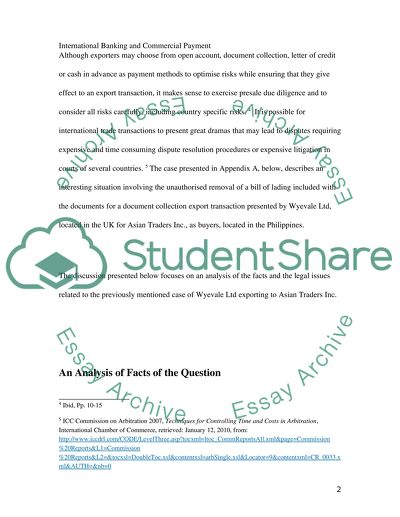Cite this document
(“International Banking and Comercial Payment Essay”, n.d.)
Retrieved from https://studentshare.org/environmental-studies/1405146-international-banking-and-comercial-payment
Retrieved from https://studentshare.org/environmental-studies/1405146-international-banking-and-comercial-payment
(International Banking and Comercial Payment Essay)
https://studentshare.org/environmental-studies/1405146-international-banking-and-comercial-payment.
https://studentshare.org/environmental-studies/1405146-international-banking-and-comercial-payment.
“International Banking and Comercial Payment Essay”, n.d. https://studentshare.org/environmental-studies/1405146-international-banking-and-comercial-payment.


